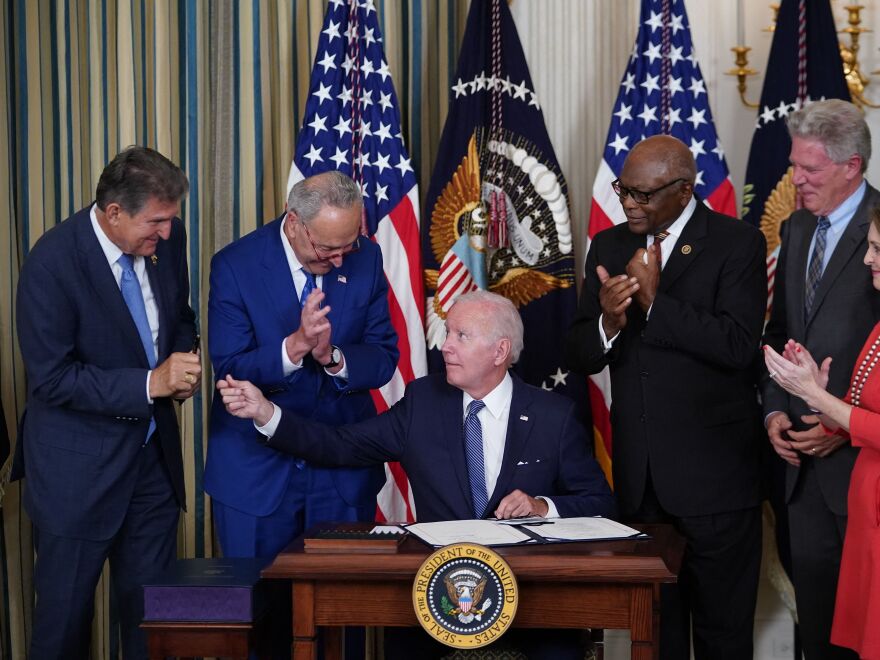August is the anniversary of Congress passing what is touted as ‘the most significant piece of climate policy in history’ by some. The policy has impacted the Cowboy State in the last year, but not everyone is pleased.
It’s called the Inflation Reduction Act (IRA) – a huge law that focuses on healthcare, taxes, but mostly energy. Basically, it encourages businesses and people to cut their greenhouse gas emissions to help meet President Biden’s goal to reduce emissions by half by 2030.
“States like Wyoming are now seeing things like your wind industry take off,” said Ben Labolt, White House communications director.
Labolt is referring to projects like the wind farm that is in construction near Rawlins. It is slated to be the largest in the country.
Under the IRA, the feds are subsidizing renewable energy projects with hundreds of billions of dollars.
“You're already seeing hundreds of clean energy jobs that have been created in the state,” Labolt said.
This includes industries like wind, nuclear and carbon capture. Wyoming has ongoing projects in all three industries.
But, the pushback is that this is all too expensive, and that the U.S. should not be shifting so quickly away from fossil fuels, an industry that Wyoming depends on.
None of Wyoming’s congressional delegates voted for the IRA last year. Sen. John Barrasso (R-Wyoming) even introduced legislation shortly after the passing, attempting to repeal parts of the IRA. It was called ‘Repealing the Ill-Conceived and Problematic (RIP) Book Minimum Tax Act’.
“The book minimum tax is another reckless power grab by the Democrats to squeeze hardworking Americans dry. Policies like this only raise taxes on workers and consumers, resulting in wage cuts and jobs moving overseas,” said Barrasso in a press release. “We need to repeal this unfair tax to ensure companies are investing in America, creating more American jobs, and unleashing American energy.”
The bill was introduced in fall of 2022 and referred to committee, where it is waiting to be heard.
But, Labolt said the IRA has been a boost for the economy.
“Don't bet against the possibility that the transition can provide both lower energy costs, and better, more sustainable, good paying jobs, that you can raise a family on in the state of Wyoming,” he said.
With Republicans taking control in the U.S. House, there are other efforts to repeal some of these climate measures included in the legislation.









